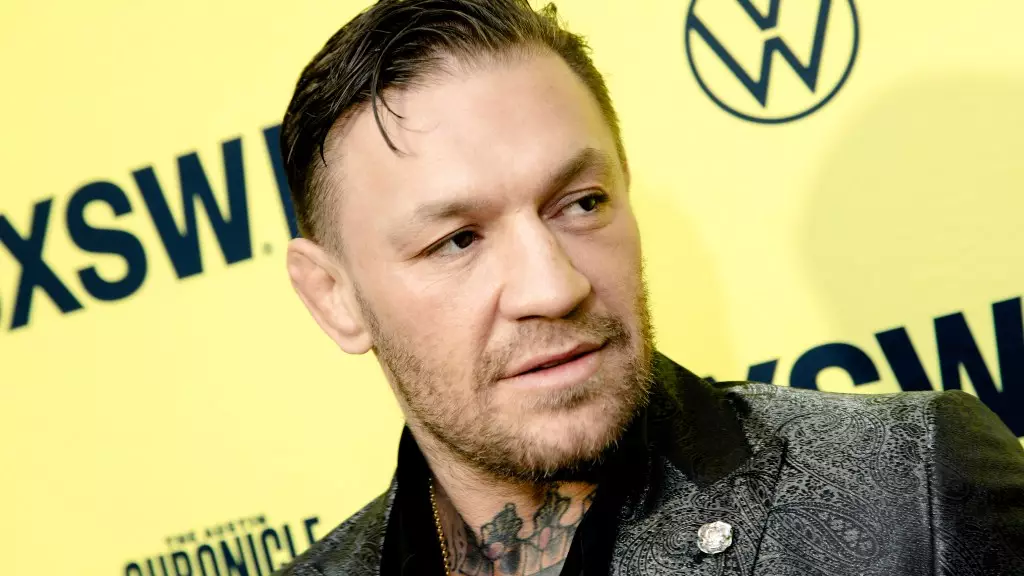In the world of sports, few athletes have captured public attention quite like Conor McGregor. Known for his controversial behavior inside and outside the octagon, McGregor has found himself at the center of a serious legal battle, with implications that extend far beyond his fighting career. A civil trial, currently ongoing in Dublin, has brought to light serious allegations of sexual assault made by Nikita Hand against the Irish fighter. As the proceedings unfold, McGregor has vehemently denied these allegations, asserting that any encounter he had with Hand was consensual. This article delves into the details of the trial, the contrasting narratives presented, and the broader implications for discussions surrounding consent in the context of high-profile cases.
As the trial progressed, McGregor took the witness stand for the first time on the sixth day of proceedings. His testimony marked a pivotal moment, providing insight into his perspective on the events that transpired in December 2018. According to McGregor, Hand was the one who initiated contact and that their interaction was characterized by mutual consent. His claims stand in stark contradiction to the allegations put forth by Hand, who alleges she was raped after a night of drinking and drug use following a work party. The emotional toll and intensity of the situation were palpable, with McGregor describing his shock upon learning he was under investigation.
Throughout the trial, the courtroom has been a stage for diverging accounts. Whereas Hand portrays herself as a victim of McGregor’s aggressive behavior, he insists the encounter was consensual, describing her as flirtatious and willing. Such contrasting narratives are common in sexual assault cases and highlight the complexities involved in legal interpretations of consent.
The trial has featured testimonies from various witnesses, including friends, medical professionals, and law enforcement officials. These testimonies seem to corroborate Hand’s timeline of events and have raised questions about the accuracy of McGregor’s claims. For instance, medical staff provided evidence that Hand sustained injuries which, according to her interpretation, align with her claims of having been assaulted. However, McGregor dismissed these claims, asserting that he was not the cause of her injuries.
The dynamics of the trial are further complicated by the presence of other individuals during the alleged incident. Hand’s co-worker, Danielle Kealey, who also attended the same party, expressed uncertainty about what transpired, stating that Hand appeared fine when she emerged from the adjoining hotel room. She later revealed that she had consensual relations with McGregor’s friend, James Lawrence, the same night. Such turning points create a murky environment for jurors attempting to derive a definitive understanding of the events.
The McGregor case underscores a larger societal tension regarding consent, particularly in environments where alcohol and drugs are involved. In recent years, conversations surrounding sexual misconduct have intensified, with efforts to encourage survivors to speak out and hold perpetrators accountable. However, such cases often invoke an array of emotions and reactions, leaving both accusers and defendants to navigate an unpredictable public and legal landscape.
The defense of consent in high-profile cases often hinges on nuanced perceptions of interaction; what may seem consensual to one party may be perceived as coercive or forceful to another. The differing narratives presented by McGregor and Hand reinforce the challenges jurors face when attempting to discern truth from accusation, as personal biases and societal norms inform perceptions of consent.
As the trial continues, the impact on McGregor’s brand and legacy as a fighter and public figure looms large. Depending on the outcome, his career could either weather the storm or potentially face new fallout. For the UFC and its fans, McGregor represents a polarizing figure – revered for his talent in the cage, yet mired in controversy in his personal life.
The trial is expected to persist for several more days, with testimonies and evidence painting a fuller picture of the events leading to the allegations. Legal experts and analysts will undoubtedly scrutinize the proceedings closely, not only for its implications on McGregor but also as a poignant reminder of the ongoing dialogue surrounding consent, accountability, and justice in contemporary society.
As the high-profile trial of Conor McGregor unfolds, the conflicting narratives of him and his accuser shine a light on the complexities surrounding consent, particularly in situations framed by intoxication and social chaos. The outcome may set precedents in both legal contexts and public discourse about sexual misconduct, challenging society to reflect critically on how we view allegations and the intricate layers of personal interactions. The coming days in court are sure to reveal more as both McGregor and Hand seek resolution in their respective quests for justice.

